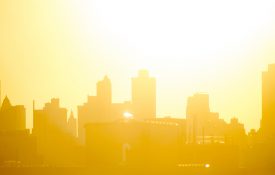-
The Upside of College Rejection: Your Safety School Might Be the Smarter Choice
Time: The headlines last week weren't pretty. As colleges and universities nationwide revealed their admissions decisions, news broke of a dramatic decline in acceptance rates — and not just at Ivy League schools. The shift means that for the legions of high school students who sunk all their hopes and plans into a dream school find themselves grappling with some serious disappointment this week. Read the whole story: Time
-
Cognitive and Motivation Style Differences Underlying Political Orientation
APS Fellow John Jost of New York University discusses cognitive and motivation style differences underlying political orientation. Just another example of how psychological science plays a role in our everyday lives, including politics. Want more information on this topic? Check out other research done by John Jost: Napier, J.L., & Jost, J.T. (2008). Why are conservatives happier than liberals? Psychological Science, 19, 565-572. Jost, J.T., Nosek, B.A. & Gosling, S.D. (2008). Ideology: Its resurgence in social, personality, and political psychology. Perspectives on Psychological Science, 3,126-136. Wakslak, C., Jost, J.T., Tyler, T.R., & Chen, E. (2007).
-
Climate beliefs change with the weather
ABC News.au: US researchers have found people's climate beliefs blow hot and cold depending upon the weather of the day. When people think the day's temperature is hotter than usual they are more likely to believe in and feel concerned about global warming. Likewise, when the day's temperature is lower than usual, people's belief in global warming plummets. These are the findings of a new study from Columbia University's Centre for Research on Environmental Decisions published in Psychological Science. Read the whole story: ABC.news.au
-

Some People’s Climate Beliefs Shift With Weather
Results from three studies show that people who thought the current day was warmer than usual were more likely to believe in and feel concern about global warming than those who thought the day was unusually cold. Visit Page
-
Sneaky Stars and Stripes
Believe it or not, basking in the glow of the grand old flag may shift our political beliefs. A study in an upcoming issue of Psychological Science found that exposure to the American flag led to a shift toward Republican beliefs, attitudes, and voting behavior, for both Republican and Democratic participants.
-
The Weather Changes Our Opinions About Climate Change: Study
Fast Company: Any time the weather is extreme, people on either side of the climate change debate will use it to prove the other side is wrong. If it's cold in summer, climate change nonbelievers will ask where the global warming is. If it's hot in winter, climate change activists will ask people to just step outside to see the changes we have wrought on the environment.

